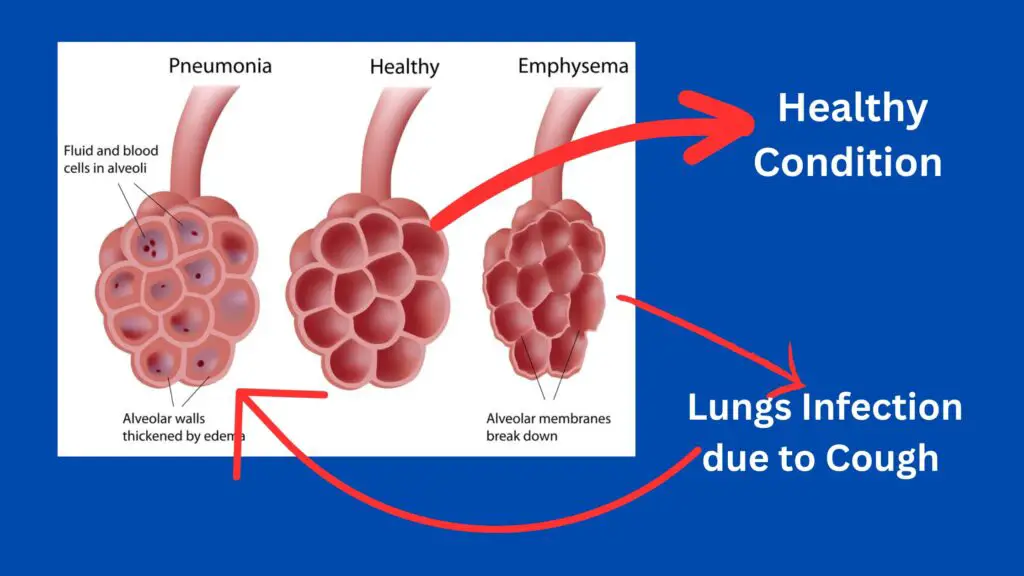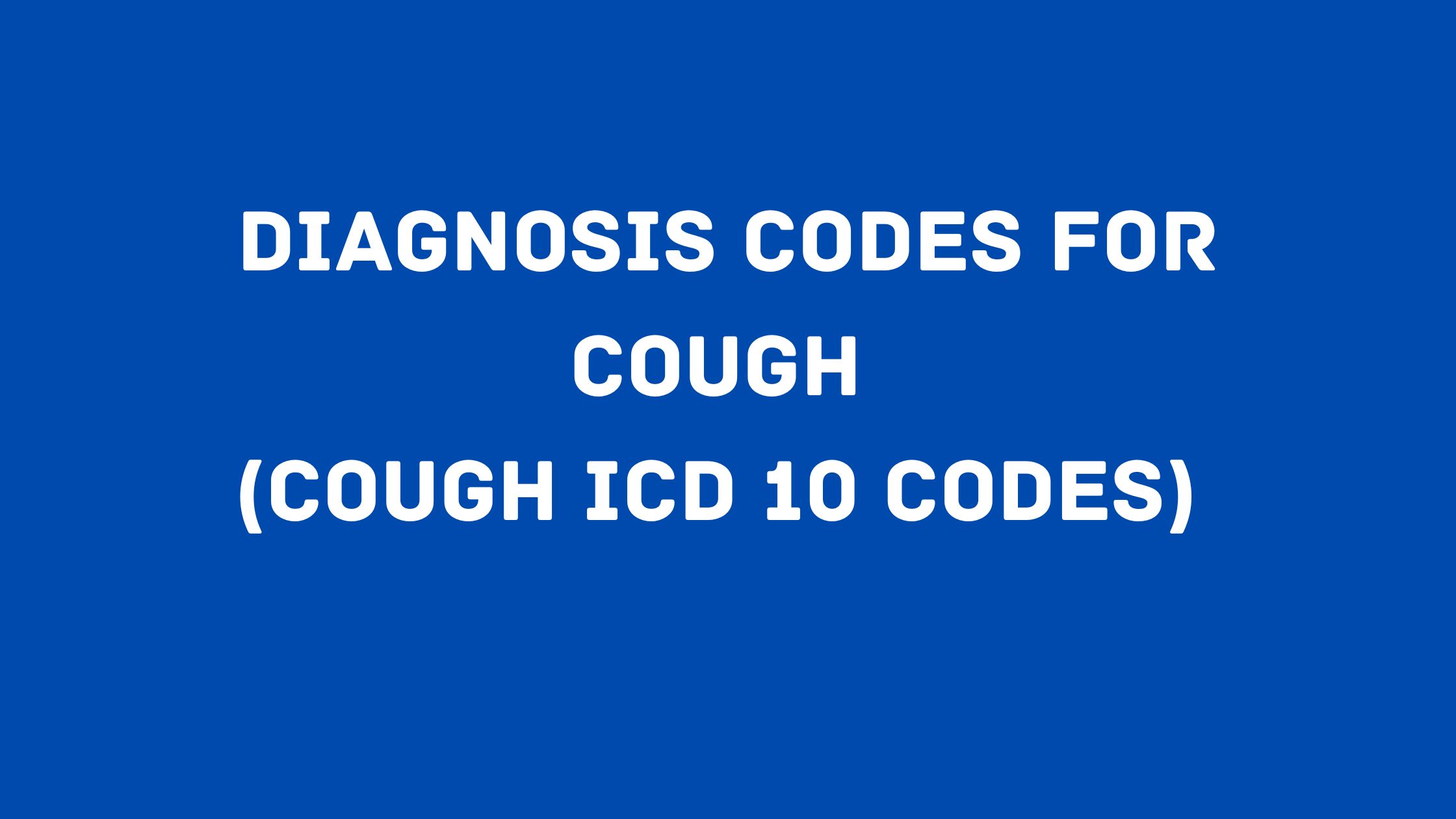Coughing is an important physiological reflex responsible for protecting the airways of the body by ridding them of foreign substances and irritants. The ICD 10 Code for Cough is R05. It is usually caused by a respiratory tract infection, environmental exposure to dust, smoke, and pet dander and pollen, the common cold or flu virus, gastroesophageal reflux disease (GERD), or other diseases such as allergies or irritations.
Cough can also be caused by asthma, lung cancer or other types of respiratory disease. Generally speaking, most cases of whooping cough are not serious and often only require rest and home treatment such as drinking plenty of fluids, avoiding smoking or second-hand smoke, and over-the-counter treatments as needed for symptomatic relief. Doing. However, if it is not treated properly on time, it can give serious consequences.
Table of Contents
- ICD 10 Code for Cough
- Causes of Cough
- Symptoms of Cough
- Effects of Cough on Body
- How to Protect ourself from cough?
- Conclusion:
- FAQs
- Related Articles:
ICD 10 Code for Cough
Cough ICD 10 code and related to cough disease diagnosis codes are as mentioned below,
| Description | ICD Codes for Cough |
| Elevated blood-pressure reading, without diagnosis of hypertension | R03.0 |
| Nonspecific low blood-pressure reading | R03.1 |
| Hemorrhage from respiratory passages | R04 |
| Epistaxis | R04.0 |
| Hemorrhage from throat | R04.1 |
| Hemoptysis | R04.2 |
| Hemorrhage from other sites in respiratory passages | R04.8 |
| Acute idiopathic pulmonary hemorrhage in infants | R04.81 |
| Hemorrhage from other sites in respiratory passages | R04.89 |
| Hemorrhage from respiratory passages, unspecified | R04.9 |
| Cough | R05 |
| Acute cough | R05.1 |
| Subacute cough | R05.2 |
| Chronic cough | R05.3 |
| Cough syncope | R05.4 |
| Other specified cough | R05.8 |
| Cough, unspecified | R05.9 |
| Abnormalities of breathing | R06 |
| Dyspnea | R06.0 |
| Unspecified | R06.00 |
| Orthopnea | R06.01 |
Causes of Cough
The most common causes of cough can be related to a variety of assets that include allergy or irritant-based exposures, such as dust, inhaled dander, smoke, or airborne substances found in the face. Cough for proper cough treatment It is important to identify the root cause of. Following are some of the special reasons:-
◆ Lung infections such as cold and pneumonia etc.
◆ Unresolved asthma exacerbation.
◆Gastro-esophageal reflux disease (GERD).
◆Smoking or being exposed to secondhand cigarette smoke.
◆Upper respiratory infection.
◆Lung related drug side effects.
◆ Heart failure and other cardiac conditions that can cause fluid backup in the lungs.
◆ Cough can also be caused by foreign objects stuck in the airways, interstitial pulmonary fibrosis or other diseases affecting the lungs.
Symptoms of Cough
Cough itself is a common symptom of many health problems and conditions, ranging from minor and temporary to severe and chronic. Following are the common symptoms of cough-
◆Difficulty in breathing is the common symptom of cough.
◆ Wheezing or loud sound while breathing. ◆ Chest pain and worsening of pain during breathing.
◆Hoarseness or not being able to speak properly.
◆ Sharp pain in chest muscles.
◆ Depending on the condition or underlying cause of the cough, other symptoms such as chest tightness may also be experienced. These include increased mucus production, bloody phlegm, weight loss, etc.
◆Apart from this, symptoms of cough include night sweats, fever, chills, fatigue, headache, itching in the throat or around the eyes/nose/mouth, etc.
Effects of Cough on Body
Cough is a common symptom associated with a variety of illnesses, and is the body’s natural response to an irritant or foreign object in the lungs. Cough can have both immediate and chronic effects on the body. In the short term, the cough may also cause fatigue, muscle pull in the chest area, headache and dizziness. Prolonged, excessive coughing can lead to greater exhaustion and dehydration due to the loss of fluids and nutrients from repeated coughing fits. Additionally, people who suffer from extended episodes of cough are at increased risk of developing respiratory infections due to weakened immune system defenses. For this reason, it is important for anyone experiencing a persistent cough or heartburn to seek immediate medical advice so that the underlying problem can be treated effectively.

How to Protect ourself from cough?
By staying up-to-date about vaccinations, avoiding contact with people who are sick, washing your hands regularly and thoroughly with soap and water or using a hand sanitizer that contains at least 60% alcohol, you can One can easily avoid the risks. Frequent surfaces (eg, doorknobs, keyboards, counters), covering nose and mouth when sneezing or coughing, avoiding touching the nose, mouth, and eyes as much as possible Taking decongestants to reduce thickened mucus in the lungs Taking medication if needed and getting enough rest. Additionally, because the immune system can be weakened during periods of high stress, it is important to engage in healthy lifestyle habits such as eating a balanced diet rich in energy sources that promote general health (fruits, vegetables and whole grains). Along with this, moderate physical exercise should also be done. Activity most days of the week.
Conclusion:
More severe cases of whooping cough should be evaluated by a doctor. If you have experienced a cough for more than two weeks, it is important to talk to your doctor to determine any underlying causes that may be causing your health problem. Although we have given enough information about cough through this post, such as what is cough, what causes cough and what are its symptoms, how to avoid cough, etc. Cough should never be taken lightly whether it is normal or serious, it can also cause the birth of a dangerous disease like TB.
FAQs
Ans. Consult a doctor if you have swelling, shortness of breath, difficulty breathing, fever and chills accompanied by yellow mucus, chest pain that worsens with deep breathing, or a cough that lasts for more than several weeks Should be taken
Ans. To get rid of cough immediately, mix honey and ginger juice and drink it, it will give instant relief, do not consume water at all.
Note- All information updated from reliable and authorized source of information and USA gov authorized web portals and other source of information like CMS, AAPC, ICD10data, etc. All content is used for information and education purpose only.

